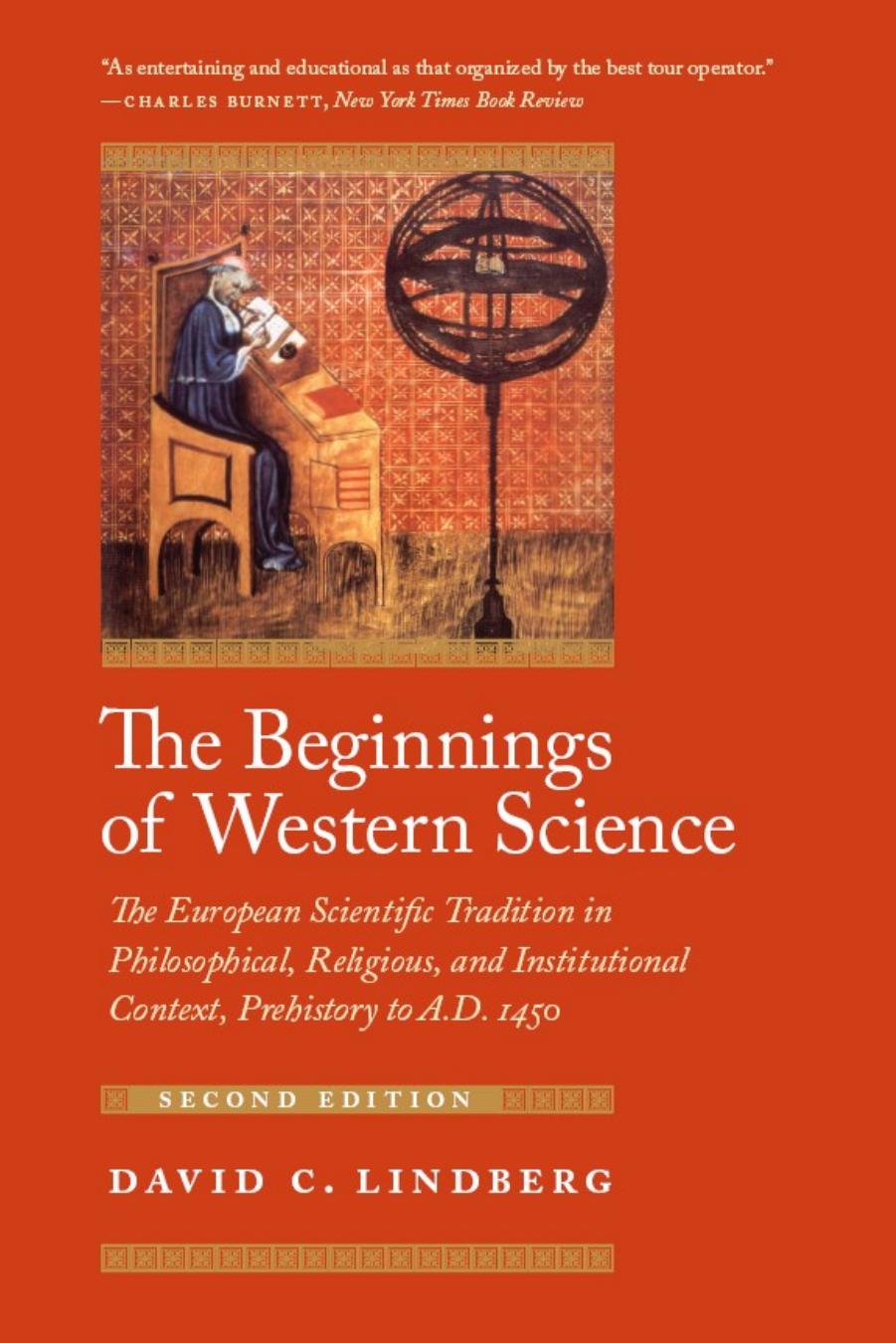The Beginnings of Western Science: The European Scientific Tradition in Philosophical, Religious, and Institutional Context, Prehistory to A.D. 1450 by David C. Lindberg

Author:David C. Lindberg
Language: eng
Format: mobi, epub, pdf
Tags: Non-Fiction, Intellectual History, Eurasian History, Science, European History, v.5, Amazon.com, Retail, History of Science
ISBN: 9780226482057
Publisher: University Of Chicago Press
Published: 2007-01-01T15:00:00+00:00
THE RELATIONS OF PHILOSOPHY AND THEOLOGY AFTER 1277
The condemnations are important as benchmarks in the gradual assimilation of Aristotelian philosophy by medieval Christendom. They reveal the strength of conservative sentiment in the 1270s and signal a provisional conservative victory. But it may be well to pause and consider precisely what had been won.
In the first place, even the most conservative of those involved in promulgating the condemnations were not aiming for the elimination of Aristotelian philosophy. Their purpose was merely to administer a healthy dose of discipline, which would unforgettably remind philosophy of her handmaiden status, while at the same time settling certain points of dispute. Second, although this was, strictly speaking, a local victory (since Tempier’s decree was formally binding only in Paris), its influence was, in fact, substantially wider. For one thing, Paris was the premier European university for theological studies (the only one on the Continent at the time), and a decree such as this would inevitably have reverberations throughout Christendom. For another, the pope was known to be in touch with Parisian developments, concerned about the dangers of radical Aristotelianism, and possibly willing to intervene on behalf of the conservatives. Moreover, eleven days after Tempier promulgated his 1277 decree, the archbishop of Canterbury, Robert Kilwardby, issued a smaller, but in many respects similar, condemnation applicable to all of England. And in 1284 Kilwardby’s decree was renewed by his successor as archbishop of Canterbury, the Franciscan John Pecham, an old adversary of Aquinas and one of the leaders among the traditionalists.
We have no exact knowledge about the force of the condemnations late in the thirteenth century or early in the fourteenth; we can assume that their power to compel obedience and to shape philosophical thought varied widely. By 1323 Thomas Aquinas’s reputation had recovered to the point where Pope John XXII could elevate him to sainthood; and in 1325 the bishop of Paris revoked all articles of the condemnation of 1277 applicable to Thomas’s teaching. Nonetheless, we can still detect the shadow of the condemnations a century after their promulgation. John Buridan, a Parisian master of arts and twice rector of the university, who flourished around the middle of the fourteenth century, was one of many who continued to wrestle with the difficulties posed by the condemnations. Indeed, on several occasions Buridan revealed a sharp awareness of the threat of theological censure (particularly acute for masters of arts) when his scholarly labors carried him into theological territory. In his Questions on Aristotle’s Physics, where he found it necessary to comment on the movers of the celestial spheres, he concluded by declaring his willingness to yield to theological authority: “this I do not say assertively but [tentatively], so that I might seek from the theological masters what they might teach me in these matters.” And in 1377, a full century after the condemnation, the distinguished Parisian theologian Nicole Oresme defended his opinion that the cosmos is surrounded by an infinite void space by advising potential critics that “to say the contrary is to maintain an article condemned in Paris.
Download
The Beginnings of Western Science: The European Scientific Tradition in Philosophical, Religious, and Institutional Context, Prehistory to A.D. 1450 by David C. Lindberg.epub
The Beginnings of Western Science: The European Scientific Tradition in Philosophical, Religious, and Institutional Context, Prehistory to A.D. 1450 by David C. Lindberg.pdf
This site does not store any files on its server. We only index and link to content provided by other sites. Please contact the content providers to delete copyright contents if any and email us, we'll remove relevant links or contents immediately.
| Africa | Americas |
| Arctic & Antarctica | Asia |
| Australia & Oceania | Europe |
| Middle East | Russia |
| United States | World |
| Ancient Civilizations | Military |
| Historical Study & Educational Resources |
The Daily Stoic by Holiday Ryan & Hanselman Stephen(3304)
The Fate of Rome: Climate, Disease, and the End of an Empire (The Princeton History of the Ancient World) by Kyle Harper(3062)
People of the Earth: An Introduction to World Prehistory by Dr. Brian Fagan & Nadia Durrani(2734)
Ancient Worlds by Michael Scott(2682)
Babylon's Ark by Lawrence Anthony(2673)
The Daily Stoic by Ryan Holiday & Stephen Hanselman(2572)
Foreign Devils on the Silk Road: The Search for the Lost Treasures of Central Asia by Peter Hopkirk(2463)
India's Ancient Past by R.S. Sharma(2451)
MOSES THE EGYPTIAN by Jan Assmann(2412)
The Complete Dead Sea Scrolls in English (7th Edition) (Penguin Classics) by Geza Vermes(2277)
The Earth Chronicles Handbook by Zecharia Sitchin(2227)
Lost Technologies of Ancient Egypt by Christopher Dunn(2224)
24 Hours in Ancient Rome by Philip Matyszak(2078)
Alexander the Great by Philip Freeman(2065)
Aztec by Gary Jennings(2023)
The Nine Waves of Creation by Carl Johan Calleman(1916)
Curse Tablets and Binding Spells from the Ancient World by Gager John G.;(1860)
Before Atlantis by Frank Joseph(1849)
Earthmare: The Lost Book of Wars by Cergat(1825)
